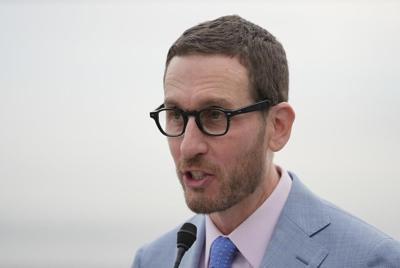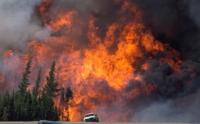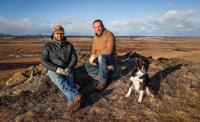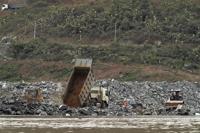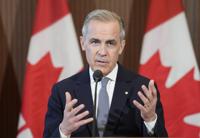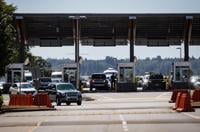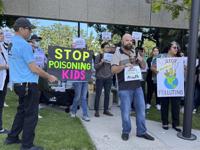SACRAMENTO, Calif. (AP) — Business and agricultural groups sued California on Tuesday over the most sweeping climate disclosure mandates in the nation, arguing the policies signed by Gov. Gavin Newsom last year overstep on the federal government's authority to regulate emissions nationwide.
The U.S. Chamber of Commerce, California Chamber of Commerce, American Farm Bureau Federation and other groups filed the lawsuit in the U.S. District Court for the Central District of California. They argue the new rules go too far in part because they apply to companies headquartered outside of California as long as they do business in the state. The groups also allege the laws infringe upon the First Amendment by requiring companies to comment on what the lawsuit calls a “politically fraught” topic — climate change.
“These new climate reporting laws are far from cost-effective and they will not have any notable impact on climate change,” Jennifer Barrera, CEO of the California Chamber of Commerce, said in a statement. “Compelling businesses to report inconsistent and inaccurate information unnecessarily places them at risk for enormous penalties.”
The suit marks the first major legal challenge to a set of laws that garnered attention from major companies and environmental leaders well beyond California. It comes as the state prepares to assess how to implement the new laws. Newsom, who often touts California’s status as a global climate leader, signed the high-profile laws last year ahead of the federal government finalizing .
The lawsuit says the business groups support efforts to curb planet-warming emissions but argue the new disclosure rules could lead to a “patchwork of inconsistent" laws if more states pass emissions regulations that conflict with one another.
One of the laws requires public and private companies to disclose their greenhouse gas emissions beginning in 2026. The law applies to more than 5,300 U.S. companies that do business in California, regardless of where they are headquartered. Companies will have to report emissions that include those released to make products and transport them. They will also have to disclose indirect emissions such as employee business travel.
Proponents of the law say it will increase transparency about how large companies contribute to climate change and help them evaluate how they can reduce their emissions. But the suit argues that the law will be too burdensome and that the emissions data could contain inaccuracies that would mislead the public.
State Sen. Scott Wiener, a Democrat representing San Francisco who authored the law, called the lawsuit “straight up climate denial.”
“The Chamber is taking this extremist legal action because many large corporations — particularly fossil fuel corporations and large banks — are absolutely terrified that if they have to tell the public how dramatically they’re fueling climate change, they’ll no longer be able to mislead the public and investors," he said in a statement.
The business groups are also suing California over a new law requiring companies that make more than $500 million annually to report every other year how climate change will impact their finances and how they plan to adapt. The suit argues the state should not require companies “to speak about the effects of, and proper response to, climate change.”
Democratic State Sen. Henry Stern of Los Angeles, who introduced the financial disclosure legislation, said in a statement that the groups backing the suit were trying to undermine the state's climate laws.
“It’s a cynical and dangerous ploy to bait the Supreme Court of the United States into a total rewrite of environmental federalism under the color of some contorted version of the First Amendment,” Stern said.
___ Austin is a corps member for The Associated Press/Report for America Statehouse News Initiative. is a nonprofit national service program that places journalists in local newsrooms to report on undercovered issues. Follow Austin on X, the platform formerly known as Twitter: @sophieadanna

